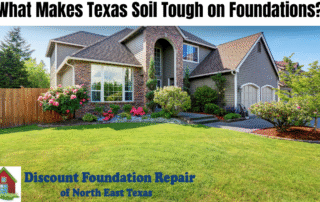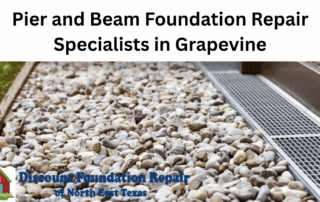How to Keep Rainwater Away from Your Foundation
Discount Foundation Repair helps homeowners protect their homes by addressing one of the most common causes of foundation problems: uncontrolled rainwater. Rain may seem harmless, but over time, poor drainage can shift soil, weaken supports, and cause cracks that spread across floors and walls. By learning how to manage runoff and redirect water safely, you can avoid costly repairs and keep your foundation solid for years to come. Why Rainwater Is a [...]










